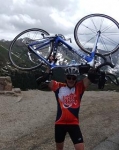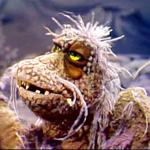If I were you, I would do this:
- Assuming $ is not an issue, have another sleep study when I was NOT experiencing allergy congestion.
- Make sure they test me sleeping on my back & side; you might not have apnea side sleeping.
- Made sure it's a split study, so they hook you up with a mask & CPAP device & titrate to the ideal pressure and increase beyond that to see if central apneas emerge (this latter is very important & will be very helpful if you decide to get an APAP machine).
- If the above is not feasible, buy a recording oximeter and start using it religiously to gather data and determine if saturated oxygen levels (SpO2) during sleep was dropping into the 'bad' percentages and heart rate showing events (same gadget records both).
- Check my complete blood chemistry lab and see if my red blood cell count, my RDW & hemocrit are within normal range; an untreated or poorly treated (yes, lots of us do not have great therapy for a number of reasons that we provide peer-to-peer coaching about) apneics' body adapts to nightly oxygen deprivations by increasing these as adaptation as if we were living at high altitude where oxygen percentage is lower
Do you get up to pee a lot at night? I was, 8-10 times/night that stopped on night 1 of CPAP therapy. This is called nocturia and occurs to reduce the hypertension that occurs with events...the brain panics & drastically increases adrenalin to wake you up to your wide-awake (or almost awake) breathing pattern. If they occur often enough, 24-hr a day hypertension results.
Do you have morning headaches that do not go away with pain meds? They occur when the body's carbon dioxide levels are deranged.
Does diabetes run in your family? If so, be aware that somewhere between 65-80% of untreated apneics will become diabetic within 5 yrs of untreated apnea.
Like Den said, untreated apnea causes wt gain. I date the start of mine to a yr or so before I gained 50#s with no change in eating/activity, just a lot more stress (and even that might have been due to the apnea).
I had the bad habit of short sleeping most of my adult life as I did not realize how very important good restful sleep was...I regret this habit.
Is your sleep becoming increasingly light? Mine was and to some extent I still am very sensitive to outside noise, light, movement. Mine got lighter and lighter for a long time and then I started sleeping the
sleep of the dead where I was hard to rouse/wakeup and then groggy for hours in the morning (or whenever I woke up) -- apnea, oxygen deprivation is slow suffocation every night. I easily slept 14-18 hrs when I got the chance and typically woke up more tired than when I went to sleep so I typically just got up tired after 7-8 hrs of 'sleep' as more didn't make me feel less exhausted.
Sleep disordered breathing is a horrible collection of conditions that prevent us from getting restful sleep at night. If your doc suspects it, do every test possible to ensure you do or do not have any of them -- they are deadly. And, when they aren't deadly, they like a stroke can leave you permanently dysfunctional and incapable of taking care of yourself...not good.
You are too young to invite the damages this creates untreated.
Best of luck resolving this one way or the other!















